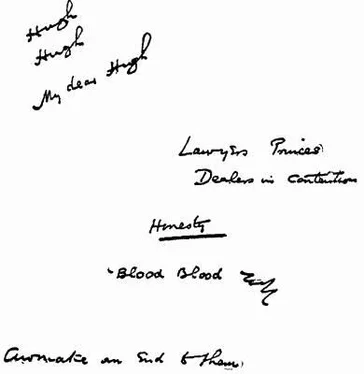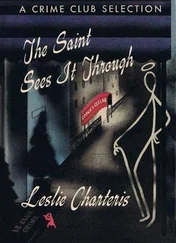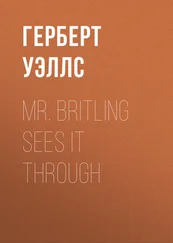Herbert Wells - Mr. Britling Sees It Through
Здесь есть возможность читать онлайн «Herbert Wells - Mr. Britling Sees It Through» весь текст электронной книги совершенно бесплатно (целиком полную версию без сокращений). В некоторых случаях можно слушать аудио, скачать через торрент в формате fb2 и присутствует краткое содержание. Жанр: Классическая проза, на английском языке. Описание произведения, (предисловие) а так же отзывы посетителей доступны на портале библиотеки ЛибКат.
- Название:Mr. Britling Sees It Through
- Автор:
- Жанр:
- Год:неизвестен
- ISBN:нет данных
- Рейтинг книги:4 / 5. Голосов: 1
-
Избранное:Добавить в избранное
- Отзывы:
-
Ваша оценка:
- 80
- 1
- 2
- 3
- 4
- 5
Mr. Britling Sees It Through: краткое содержание, описание и аннотация
Предлагаем к чтению аннотацию, описание, краткое содержание или предисловие (зависит от того, что написал сам автор книги «Mr. Britling Sees It Through»). Если вы не нашли необходимую информацию о книге — напишите в комментариях, мы постараемся отыскать её.
Mr. Britling Sees It Through — читать онлайн бесплатно полную книгу (весь текст) целиком
Ниже представлен текст книги, разбитый по страницам. Система сохранения места последней прочитанной страницы, позволяет с удобством читать онлайн бесплатно книгу «Mr. Britling Sees It Through», без необходимости каждый раз заново искать на чём Вы остановились. Поставьте закладку, и сможете в любой момент перейти на страницу, на которой закончили чтение.
Интервал:
Закладка:
Mrs. Britling, he noted, glanced ever and again at her sunlit house—there were new sunblinds, and she had been happy in her choice of a colour—and listened with a sceptical expression to this disquisition.
"A few days ago," said Mr. Britling, trying to make things concrete for her, "you and I together were worth five-and-twenty thousand pounds. Now we don't know what we are worth; whether we have lost a thousand or ten thousand...."
He examined his sovereign purse and announced he had six pounds. "What have you?"
She had about eighteen pounds in the house.
"We may have to get along with that for an indefinite time."
"But the bank will open again presently," she said. "And people about here trust us."
"Suppose they don't?"
She did not trouble about the hypothesis. "And our investments will recover. They always do recover."
"Everything may recover," he admitted. "But also nothing may recover. All this life of ours which has seemed so settled and secure—isn't secure. I have felt that we were fixed here and rooted—for all our lives. Suppose presently things sweep us out of it? It's a possibility we may have to face. I feel this morning as if two enormous gates had opened in our lives, like the gates that give upon an arena, gates giving on a darkness—through which anything might come. Even death. Suppose suddenly we were to see one of those great Zeppelins in the air, or hear the thunder of guns away towards the coast. And if a messenger came upon a bicycle telling us to leave everything and go inland...."
"I see no reason why one should go out to meet things like that."
"But there is no reason why one should not envisage them...."
"The curious thing," said Mr. Britling, pursuing his examination of the matter, "is that, looking at these things as one does now, as things quite possible, they are not nearly so terrifying and devastating to the mind as they would have seemed—last week. I believe I should load you all into Gladys and start off westward with a kind of exhilaration...."
She looked at him as if she would speak, and said nothing. She suspected him of hating his home and affecting to care for it out of politeness to her....
"Perhaps mankind tries too much to settle down. Perhaps these stirrings up have to occur to save us from our disposition to stuffy comfort. There's the magic call of the unknown experience, of dangers and hardships. One wants to go. But unless some push comes one does not go. There is a spell that keeps one to the lair and the old familiar ways. Now I am afraid—and at the same time I feel that the spell is broken. The magic prison is suddenly all doors. You may call this ruin, bankruptcy, invasion, flight; they are doors out of habit and routine.... I have been doing nothing for so long, except idle things and discursive things."
"I thought that you managed to be happy here. You have done a lot of work."
"Writing is recording, not living. But now I feel suddenly that we are living intensely. It is as if the whole quality of life was changing. There are such times. There are times when the spirit of life changes altogether. The old world knew that better than we do. It made a distinction between weekdays and Sabbaths, and between feasts and fasts and days of devotion. That is just what has happened now. Week-day rules must be put aside. Before—oh! three days ago, competition was fair, it was fair and tolerable to get the best food one could and hold on to one's own. But that isn't right now. War makes a Sabbath, and we shut the shops. The banks are shut, and the world still feels as though Sunday was keeping on...."
He saw his own way clear.
"The scale has altered. It does not matter now in the least if we are ruined. It does not matter in the least if we have to live upon potatoes and run into debt for our rent. These now are the most incidental of things. A week ago they would have been of the first importance. Here we are face to face with the greatest catastrophe and the greatest opportunity in history. We have to plunge through catastrophe to opportunity. There is nothing to be done now in the whole world except to get the best out of this tremendous fusing up of all the settled things of life." He had got what he wanted. He left her standing upon the lawn and hurried back to his desk....
§ 6
When Mr. Britling, after a strenuous morning among high ideals, descended for lunch, he found Mr. Lawrence Carmine had come over to join him at that meal. Mr. Carmine was standing in the hall with his legs very wide apart reading The Times for the fourth time. "I can do no work," he said, turning round. "I can't fix my mind. I suppose we are going to war. I'd got so used to the war with Germany that I never imagined it would happen. Gods! what a bore it will be.... And Maxse and all those scaremongers cock-a-hoop and 'I told you so.' Damn these Germans!"
He looked despondent and worried. He followed Mr. Britling towards the dining-room with his hands deep in his pockets.
"It's going to be a tremendous thing," he said, after he had greeted Mrs. Britling and Hugh and Aunt Wilshire and Teddy, and seated himself at Mr. Britling's hospitable board. "It's going to upset everything. We don't begin to imagine all the mischief it is going to do."
Mr. Britling was full of the heady draught of liberal optimism he had been brewing upstairs. "I am not sorry I have lived to see this war," he said. "It may be a tremendous catastrophe in one sense, but in another it is a huge step forward in human life. It is the end of forty years of evil suspense. It is crisis and solution."
"I wish I could see it like that," said Mr. Carmine.
"It is like a thaw—everything has been in a frozen confusion since that Jew-German Treaty of Berlin. And since 1871."
"Why not since Schleswig-Holstein?" said Mr. Carmine.
"Why not? Or since the Treaty of Vienna?"
"Or since—One might go back."
"To the Roman Empire," said Hugh.
"To the first conquest of all," said Teddy....
"I couldn't work this morning," said Hugh. "I have been reading in the Encyclopædia about races and religions in the Balkans.... It's very mixed."
"So long as it could only be dealt with piecemeal," said Mr. Britling. "And that is just where the tremendous opportunity of this war comes in. Now everything becomes fluid. We can redraw the map of the world. A week ago we were all quarrelling bitterly about things too little for human impatience. Now suddenly we face an epoch. This is an epoch. The world is plastic for men to do what they will with it. This is the end and the beginning of an age. This is something far greater than the French Revolution or the Reformation.... And we live in it...."
He paused impressively.
"I wonder what will happen to Albania?" said Hugh, but his comment was disregarded.
"War makes men bitter and narrow," said Mr. Carmine.
"War narrowly conceived," said Mr. Britling. "But this is an indignant and generous war."
They speculated about the possible intervention of the United States. Mr. Britling thought that the attack on Belgium demanded the intervention of every civilised power, that all the best instincts of America would be for intervention. "The more," he said, "the quicker."
"It would be strange if the last power left out to mediate were to be China," said Mr. Carmine. "The one people in the world who really believe in peace.... I wish I had your confidence, Britling."
For a time they contemplated a sort of Grand Inquest on Germany and militarism, presided over by the Wisdom of the East. Militarism was, as it were, to be buried as a suicide at four cross-roads, with a stake through its body to prevent any untimely resuscitation.
§ 7
Интервал:
Закладка:
Похожие книги на «Mr. Britling Sees It Through»
Представляем Вашему вниманию похожие книги на «Mr. Britling Sees It Through» списком для выбора. Мы отобрали схожую по названию и смыслу литературу в надежде предоставить читателям больше вариантов отыскать новые, интересные, ещё непрочитанные произведения.
Обсуждение, отзывы о книге «Mr. Britling Sees It Through» и просто собственные мнения читателей. Оставьте ваши комментарии, напишите, что Вы думаете о произведении, его смысле или главных героях. Укажите что конкретно понравилось, а что нет, и почему Вы так считаете.






